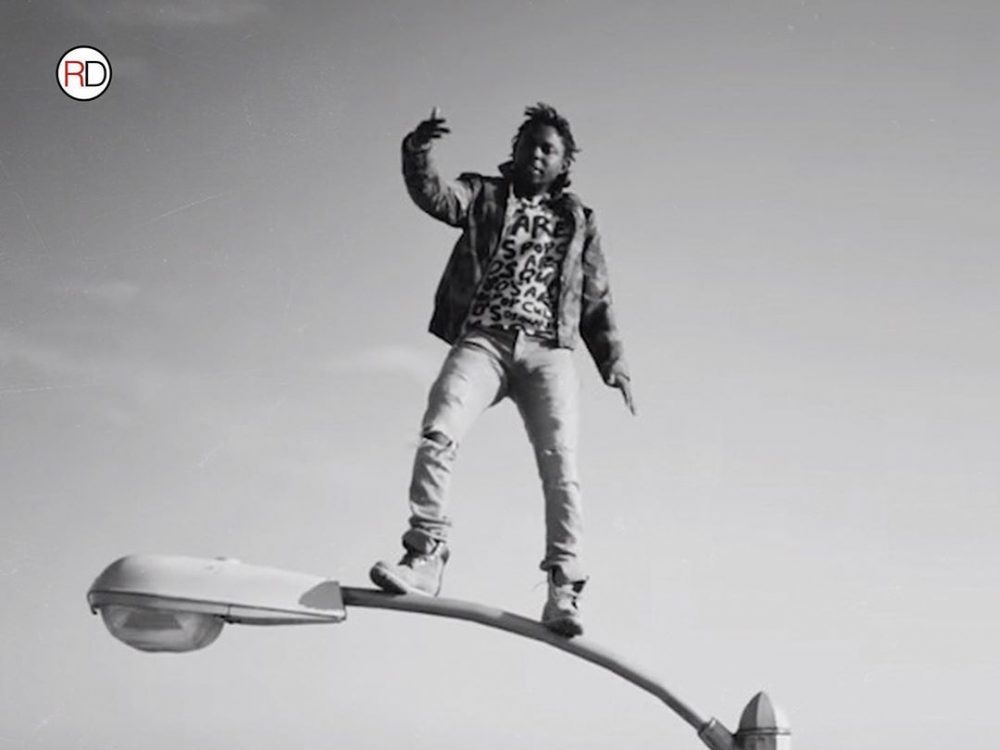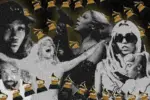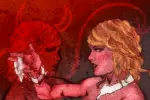On March 15, 2015, rapper Kendrick Lamar released his third studio album, “To Pimp a Butterfly.” The album had great commercial success; it went platinum, earning Lamar 11 nominations at the 2016 Grammy Awards (the most nominations a rapper has ever received in a single night) and it sold a million copies in the United States by 2017.
“To Pimp a Butterfly” blends various elements from traditional African American music including rap, funk, jazz, soul and spoken word poetry. The concept album features a spoken poem that is repeated after every few songs, each time revealing more lines before the entire poem is read in the final song, “Mortal Man.” The politically charged album tackles issues of racial inequality and institutional racism, as well as personal themes of struggling with depression and faith.
Lamar was inspired to write conscious music after his 2014 trip to South Africa, particularly after his visit to Nelson Mandela’s jail cell on Robben Island. In an interview with Andreas Hale for the Grammy Awards, co-producer and bassist Thundercat discussed the thematic direction of “To Pimp a Butterfly”: “A lot of the social issues he presents on the album were inevitable for him being a Black man in America.” Its passionate commentary and celebration of Black history provide an album of rallying cries for the Black Lives Matter movement amid the current racial climate.
The opening track, “Wesley’s Theory,” establishes the extended metaphor that is the album’s title. Successful Black artists are the allegorical butterfly “pimped” by the entertainment industry. The song title alludes to the actor Wesley Snipes who went to jail for tax evasion. Lamar explained his reasoning for the reference: “No one teaches poor Black males how to manage money or celebrity, so if they do achieve success, the powers that be can take it from right under them.”
The third track, “King Kunta,” references Kunta Kinte, the main character of Alex Haley’s 1976 novel, “Roots: The Saga of an American Family.” Two of the most iconic scenes in the novel feature Kinte getting his foot amputated after he attempts to escape from slavery, and the character refusing to accept the new name Toby, even while being whipped. The lyrics also make mention of yams, alluding to Ralph Ellison’s 1952 novel, “Invisible Man,” where the yam is used as a symbol of authenticity. Lamar explained the song’s overarching motif: “‘King Kunta’ focuses on the history of negative stereotypes all African-Americans have to reconcile and reclaiming one’s history as a King instead of a slave.”
“Alright” has been deemed a defining anthem of the modern Black liberation movement. The song’s deliberate references to African American history coupled with an upbeat chorus repeating “we gon’ be alright” create a perfectly balanced protest song. Upon its release in 2015, the chorus was chanted at several youth-led protests against police brutality. The lyrics “and we hate po-po, wanna kill us dead in the street fo sho’” have a renewed relevance with the recent murders of Atatiana Jefferson, Elijah McClain, Breonna Taylor, George Floyd and countless other victims of police brutality against Black people.
“Complexion (A Zulu Love)” targets the issue of colorism and undoing society’s beauty standards. The song features rapper Rapsody who explains Lamar’s concept for the song in a 2015 interview for Spin. “He told me the title, and that we are beautiful no matter our race but he really wanted to speak to our people and address this light versus dark complex.” Rapsody continued, “I love the record. It’s very important and needed today. I remember growing up dealing with self-esteem issues in regards to the shade of my skin.” The lyric “It’s a Zulu love” refers to the Zulu philosophy “Ubuntu,” which translates to “humanity towards others.” “Complexion don’t mean a thing” — a reminder that all people deserve to be respected and treated as human beings regardless of skin color.
The 13th track, “The Blacker the Berry,” is named after the 1929 book “The Blacker the Berry: A Novel of Negro Life” by Wallace Thurman. The song opens with a monologue that suggests that American society wants Black Americans to praise it without recognizing the ways in which it has hurt them. The song is aggressive and it is angry, as it should be. The song has a connection to Tupac Shakur’s 1993 feminist anthem “Keep Ya Head Up,” which also references the novel. However, Lamar’s song focuses on all Black people regardless of gender. The lyrics of the pre-chorus, “The blacker the berry, the sweeter the juice. The blacker the berry, the bigger I shoot,” subverts the originally positive phrase in the final line — “The bigger I shoot” references racial profiling by cops.
“To Pimp a Butterfly” ends with “Mortal Man,” a 12-minute long narrative of Lamar vocalizing his hope to carry on Nelson Mandela’s legacy through rapping followed by a time-traveling “interview” with one of Lamar’s main influences, Tupac Shakur. Lamar creates a conversation with Shakur using sound clips from a 1994 interview. Lamar tells him about the present situation, “There’s nothing but turmoil goin’ on so, I wanted to ask you: What you think is the future for me and my generation today?” Shakur responds, “…next time it’s a riot it’s gonna be like, uh bloodshed. For real, I don’t think America know that. I think America think we just playing. And it’s gonna be some more playing but it ain’t gonna be no playing. It’s gonna be murder, you know what I’m saying? It’s gonna be like Nat Turner, 1831, up in this motherf–––. You know what I’m saying, it’s gonna happen.”
A shocking end to a masterpiece album, Shakur’s prediction doesn’t seem outside the realm of possibility as tensions only grow as systemic racism, discrimination and inequality continue to persist in American society. Lamar responds, “That’s crazy, man, in my opinion, only hope that we kinda have left is music and vibrations. Lot a people don’t understand how important it is, you know.” Lamar achieved just that with “To Pimp a Butterfly,” creating songs of hope, songs of fury and songs of power that both carry a movement beyond the album’s original historical context and continue to do justice to the legacy of Lamar’s greatest inspirations.

















